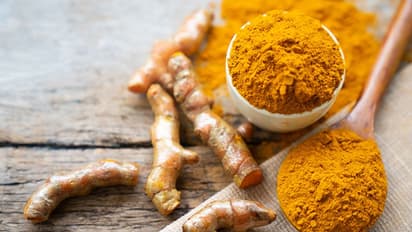Turmeric to Ashwagandha to Ginger-7 herbs that help fight inflammation and boost immunity
Published : Apr 18, 2023, 03:27 PM IST
Many herbs and spices have anti-inflammatory properties due to their high antioxidant content. These compounds help reduce inflammation by neutralising harmful molecules known as free radicals, which can damage cells and cause inflammation.
Explore the latest Lifestyle News covering fashion, wellness, travel, Food and Recipes, and more. Stay updated with trending Health News, fitness tips, and expert insights to inspire your daily living. Discover personalized lifestyle trends that keep you stylish and informed. Download the Asianet News Official App from the Android Play Store and iPhone App Store for everything that adds value to your everyday life.
Read more Photos on
